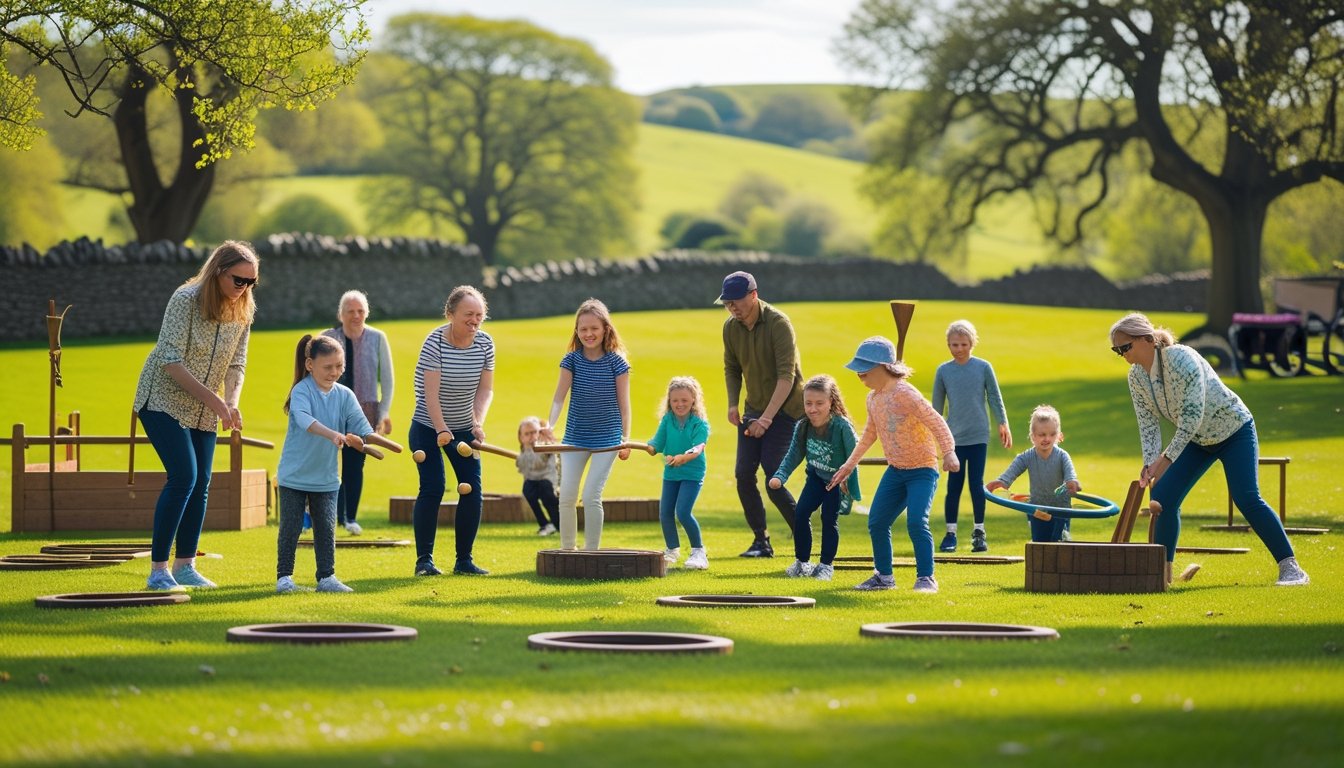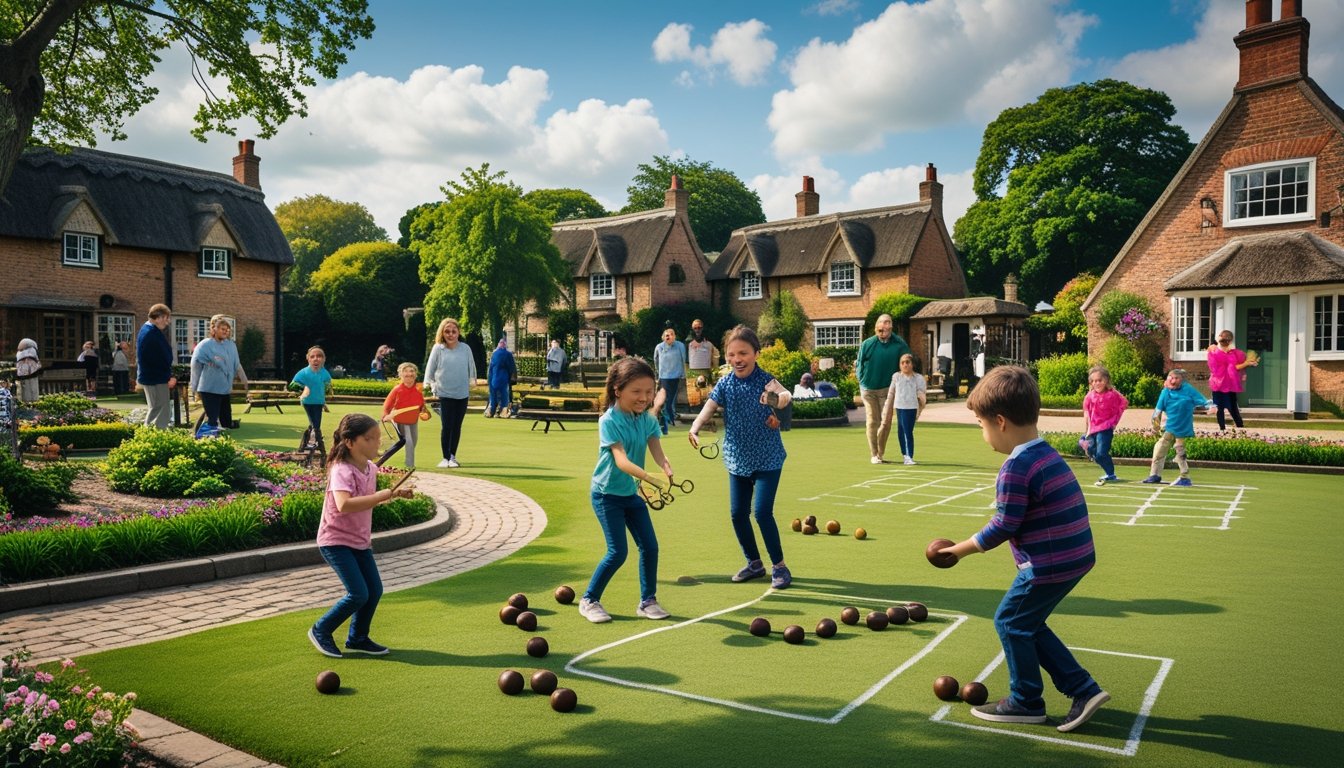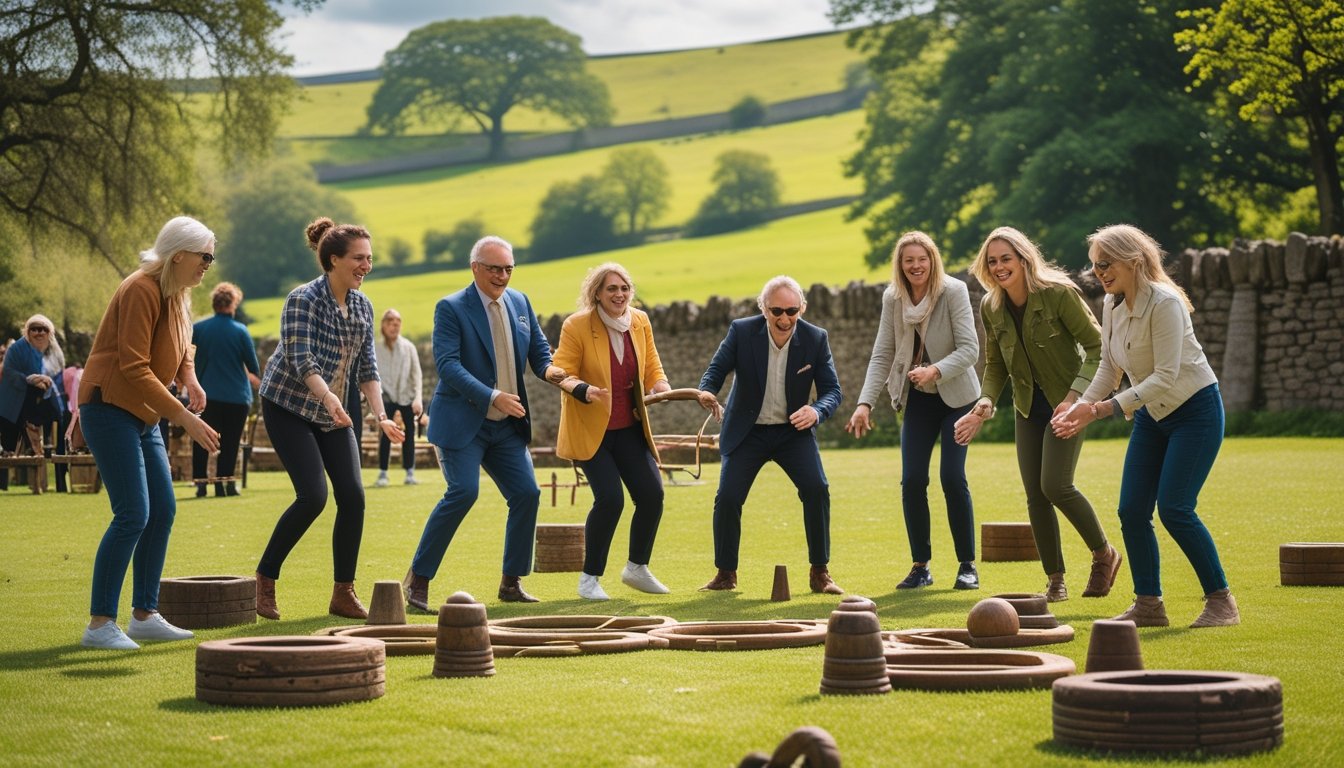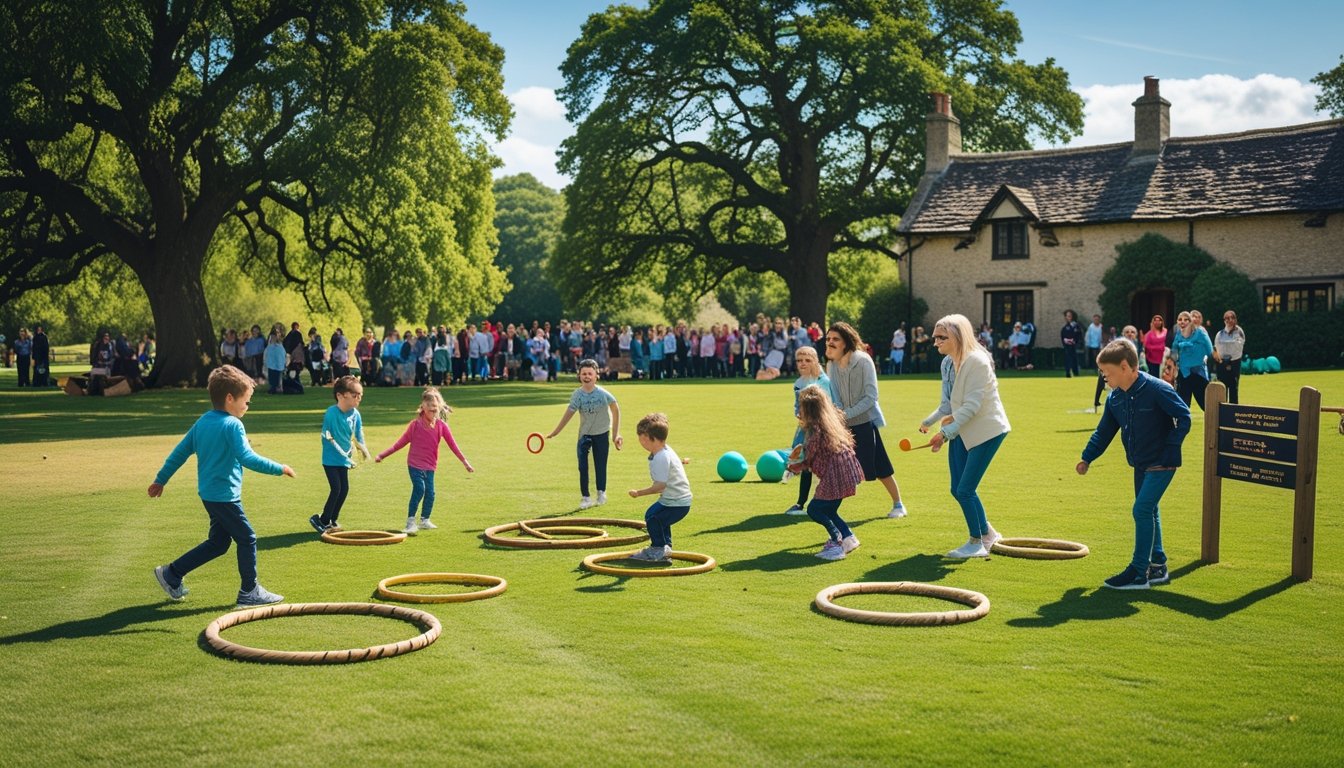Late updated: 19 Sep 2025 13:09
Written by: Emma Saunders
Exploring Historical Outdoor Games In The UK: A Journey Through Time
As we step back in time to explore historical outdoor games in the UK, we uncover a vibrant tapestry of activities that once dominated afternoons and gatherings. From the rolling hills of Scotland hosting the Highland Games to the nostalgic playground activities like hide and seek, these games form an integral part of Britain's cultural heritage. They fostered social interactions and creativity, reflecting the spirit of communities across generations.

Examining these games offers a glimpse into the creativity and physical prowess of those who lived decades before us. Many of these games, such as skipping and rounders, continue to thrive today, adapted to suit contemporary interests while preserving their original charm. Through these activities, we see how the past influences our present pastimes.
Our journey through the history of these games reveals their enduring charm and the innovative ways they have been adapted for the modern day. Their history not only enriches our cultural landscape but also offers practical insights into fostering community and teamwork among today's younger generations.
Key Takeaways
- Historical games in the UK include activities like the Highland Games and playground favourites.
- Many traditional games have been adapted to modern-day practices.
- These activities highlight the cultural heritage and foster community spirit.
Traditional Outdoor Games in the UK

Throughout history, outdoor games have been an integral part of British culture, reflecting both the simplicity and the community spirit of past generations. These activities not only entertained but also cultivated skills like hand-eye coordination. Regional variations added a unique flavour to this tradition, with each area adapting games to its local customs.
Classic Playground Activities
Hopscotch and marbles stand out as iconic playground games within the UK. Hopscotch involves a simple chalk-drawn pattern on the ground and a pebble or small object for players to toss and retrieve while hopping on one foot. This game has fostered balance and agility amongst children. Marbles, on the other hand, provides an excellent exercise in precision and control, as players shoot their glass marbles to knock others out of a particular area.
Another classic is tag, which involves chasing and evading, bringing both excitement and physical activity to playgrounds. These simple games have spanned generations, remaining favourites due to their minimal equipment needs and the inclusive nature, allowing participation by children of various ages and abilities.
Hand-Eye Coordination in Historical Games
Croquet epitomises the development of hand-eye coordination through traditional British games. Originating in Ireland, croquet became popular in England by 1850, involving mallet strikes to guide balls through hoops on a lawn. It requires strategic thinking and precision, emphasising coordination.
Pétanque, a game similar to boules, enhances these skills in a social outdoor environment. Players throw hollow metal balls as close as possible to a small wooden ball (cochonnet) on a gravel pitch. These activities demonstrate how hand-eye coordination was naturally integrated into leisure, teaching strategic planning and enhancing motor skills subtly and appealingly.
Regional Variations and Local Traditions
The UK has a rich diversity in its outdoor games, with regional traditions adding unique characteristics. In Cornwall, the game Cornish hurling is celebrated, involving a silver ball that participants must run with, pass, or carry to goals set miles apart.
In Scotland, shinty became popular, sharing similarities with field hockey. Played with sticks and a small ball, it requires skill and dexterity. Additionally, the game of rounders, akin to baseball, has been a staple throughout England, showcasing the importance of community and teamwork. These regional games highlight local pride and preserve cultural practices, providing a window into the past of their communities.
Cultural Impact and Modern Adaptations of Historic Games

Historic games in the UK have not only shaped our cultural heritage but also enriched our social interactions. Over time, many of these games have evolved, while some have experienced a decline. In recent years, modern adaptations and digital versions have sparked renewed interest.
Influence on Social Skills and Teamwork
Traditional games like rounders and tag played a vital role in developing social skills and teamwork. Children engaged in these games learned valuable lessons in communication, cooperation, and leadership.
Participation fostered social bonds, helping individuals integrate into their communities. Competitive elements encouraged strategic thinking and problem-solving, essential in both games and life. As such, these games were instrumental in creating a sense of unity and fostering friendships among groups.
Evolution and Decline of Traditional Games
Many historic outdoor games have undergone significant transformation. While some games like hopscotch and conkers remain popular, others have faded due to changes in lifestyle and the advent of new forms of entertainment.
Urbanisation and limited outdoor space have contributed to this shift. Moreover, traditional games often lack formal documentation, leading to variations in rules and styles across regions, which has sometimes diluted their original appeal. Despite this, the essence of these games persists in varied forms.
Digital and Contemporary Revivals
In recent years, digital platforms and contemporary adaptations have rekindled interest in historic games. Video games and mobile apps have emerged, bringing classics like hide-and-seek into virtual realms.
These modern adaptations retain the core elements of traditional games while adding new dimensions, making them appealing to younger generations. Additionally, community events and educational programmes have begun to promote these games, ensuring they remain a cherished part of our cultural history.
Crucially, these efforts aim to preserve the heritage of outdoor games while making them accessible to a wider audience. Through innovative adaptations, historic games continue to influence and entertain us, bridging the gap between past and present.
Frequently Asked Questions

Exploring historical outdoor games in the UK offers insights into traditional leisure activities, cultural influences, and the evolution of modern sports. These games have not only entertained but also shaped communities and societal practices over the centuries.
What are some traditional British games played outdoors?
Many traditional games such as cricket, rounders, and tag have long histories in Britain. Cricket, with roots dating back to the 16th century, is particularly iconic. Rounders, similar to baseball, also has ancient origins. Tag, a simple game of chase, has been a staple of childhood play for generations.
How have outdoor games in Britain evolved over time?
Outdoor games in Britain have evolved from simple pastimes into more structured and organised sports. What started as informal gatherings have developed rules and governing bodies. For instance, football transformed from village competitions in medieval times to the globally recognised sport it is today.
Can you list historical outdoor games that originated in the UK?
Several outdoor games have uniquely British origins. These include quoits, which involves throwing rings onto a spike, and stoolball, a precursor to cricket. Skittles, a game similar to bowling, also has deep roots in British tradition, providing leisurely entertainment through the ages.
What impact have British outdoor games had on cultural practices?
British outdoor games have significantly influenced global sporting practices and cultural exchanges. Games like cricket and football have become part of national identities around the world. They have fostered international camaraderie and competition, illustrating the UK's longstanding sporting legacy.
Which outdoor games were common in Victorian Britain?
During Victorian times, outdoor play was dominated by games like croquet, lawn tennis, and badminton. These activities became fashionable among the middle and upper classes. Parks and lawns were popular venues, bringing communities together for leisure and socialising in open spaces.
How did historical outdoor games influence modern sports?
Historical outdoor games laid the groundwork for several modern sports, shaping rules, equipment, and play styles. For example, the evolution of games like rounders contributed to the development of baseball. Cricket influenced the creation of various bat-and-ball sports across the globe, underscoring their enduring legacy.
